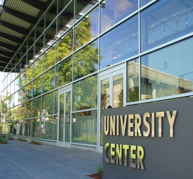
Academic Preparation For College
These articles offer advice on which high school courses to choose, how to make the most out of high school, and where to go for help when you need it. Paying attention to your academic preparation in high school makes it more likely that you will be accepted to the college you really want.
Plan your high school courses wisely. Colleges care about which courses you’re taking in high school. Those courses show colleges what kind of goals you set for yourself. Find out whether your high school course selections match what most colleges expect you to know.
Checklist for making the most of high school. Get the most out of high school. This checklist pinpoints things you can do as a high school student to prepare for college and your future career.
The GPA myth. A high GPA is important, but it’s not the only thing college recruiters are looking for in prospective students.
Strengthen your academic skills. If you think your skills aren’t quite up to speed for college, don’t give up. This article gives tips to help you improve your academic skills for college.
Senior year—no time to slump. Why you need to keep working hard during your senior year, even after you’ve been accepted to college.
Plan Your High School Course Selection. Colleges care about which courses you’re taking in high school.
The courses you take in high school show colleges what kind of goals you set for yourself. Are you signing up for advanced classes, honors sections, or accelerated sequences? Are you choosing electives that really stretch your mind and help you develop new abilities? Or are you doing just enough to get by?
Electives are courses students may select to meet total graduation requirements.
Colleges will be more impressed by respectable grades in challenging courses than by outstanding grades in easy ones.
Do your high school course selections match what most colleges expect you to know? For example, many colleges require two to four years of foreign language study.
Successful completion of the courses listed in the recommended college prep courses chart are commonly expected of prospective students. Of course, each college and university may have different high school course requirements. Be sure to check with the colleges you’re interested in to see what they recommend or require.
Message From The Dean – Bob Fulcomer
Many of the current enrollees in the HIFE College Planning Program have not taken advantage of the HIFE-Kuder Assessment Program. This is an online education and career planning system that gives students the tools they need to build a foundation for lifelong career success. The system’s scientifically validated career assessments help students learn about their personal interests, skills, and work values – and help narrow their education and career choices.
In 20 minutes or less, students can complete all 3 assessments and get instant access to results that provide critical insights for career exploration and planning. Be sure to contact your HIFE Coach or College Consultant about this.
Getting On The Right Track
High-school students average 35 hours per week o f class time while college students averages 15-18 hours per week. Between class schedules, homework, part-time job and extracurricular activities, things can be overwhelming for most students who are not prepared for their school year.
f class time while college students averages 15-18 hours per week. Between class schedules, homework, part-time job and extracurricular activities, things can be overwhelming for most students who are not prepared for their school year.
Here are a few tips in helping you get on the right track:
Use a daily planner to layout your daily, weekly and monthly schedule.
- Use your class syllabus and mark the exam dates ahead of time.
- Schedule in any activities you have for the entire semester.
- Allocate time in your schedule for studying, doing homework or major projects.
Set goals for each class.
Develop good study habits.
- Attend class on-time regularly
- Avoid skipping classes.
- Sit up front to avoid any distractions.
- Take good notes during class to use as a reference later. Consider asking permission from the teacher to record the lesson to help you with your studies.
- Do your homework as early as possible to avoid any last minute panic.
Get organized.
- Be sure to date all of your class notes to help you with your studies.
- Prepare your class materials.
- Review your calendar every day
- Ask for help or guidance from your teacher if needed. 6.
Find an effective study partner who can help you prepare for exams or should you have any questions.
Featured University – South Seattle Community College
Located on an 87-acre hilltop overlooking Elliott Bay, South Seattle Community College offers a panoramic view of the city skyline and surrounding mountains. This unique setting serves as a portal of opportunity for students with diverse needs to prepare to meet their educational and career goals. You can also train as an apprentice or learn new sustainability and “green” techniques at our 13-acre Georgetown Campus.
South provides opportunities to:
- complete the first two years of a bachelor’s degree program or get your bachelor’s here on campus in our new BAS programs from one of our university partners.
- to train for rewarding careers in an abundance of professional/technical programs (more info)
- update job skills or change careers

- complete high school improve basic skillsA moderate teacher/student ratio at South translates into personal attention for each student. Faculty members are exceptionally well qualified in their subject areas and are truly interested in helping each student achieve success
South Seattle Community College is a constantly evolving educational community dedicated to providing quality learning experiences which prepare students to meet their goals for life and work.
The college values and promotes a close involvement with the community and strong partnerships with business, labor and industry.
The college commits to meeting the diverse needs of students by providing:
- Applied baccalaureate, associate degree, college transfer, certificate, tecnical, and professional and pre-college programs which prepare studnets in their careers and further their education.
- Responsive technical and professional training programs developed in collaboration with business, labor, and industry.
- Student-centered and community-centered programs and services that value diversity, support, learning, and promote student success.
Lifelong learning opportunities for the cultural, social, professional, and and personal development of the members of our communities.
Custodial Accounts For College Savings
Presented By – Dave Bromeier, CFEd®, ChFC®, Investment Advisor
Majority of the states do not allow minors to be in a binding contract and therefore minors cannot own any types of investments like bonds, stocks, mutual funds, exchange traded funds (ETF), managed accounts, annuities or life insurance.
Parents cannot transfer assets to their minor children except through a trust. One of the most common forms of a trust is a custodial account such as a UGMA (Uniform Gift to Minors Act) or UTMA (Uniform Transfer to Minors Act). UGMA/UTMA are used for minors to own securities products, real estate or other investments without having to go through an attorney to set up a trust document or going through a court appointed trustee.
In order to establish a custodial account, a trustee or custodian must be appointed by a parent/ donor along with providing the name and social security number of the minor. The donor essentially transfers the funds into an irrevocable trust which is controlled by the custodian until the minor reaches the trust termination age. The termination age is usually between the age of 18 to 21, depending on the state and the type of trust whether a UGMA or a UTMA. The main drawback to the UGMA/UTMA is that the parent or donor loses control of this money once the termination age is reached.
Custodial accounts are considered assets of the student and therefore must be reported in the financial aid report which may affect the financial aid eligibility of the student.
What are the benefits of a custodial account?
- It’s simple and easy
- It is as easy to set up as a savings account through any bank. If you intend to transfer different types of investments, just simply call a brokerage firm. The donor may decide how much to put into the account, how the money is invested, how earnings are reinvested, and when to take money out of the account to spend on the child’s behalf. The first $850 of earnings each year is tax-free, and the next $850 is taxed annually at the child’s rate normally at 15%.
- Any earnings beyond that are taxed at the donor’s tax rate. Withdrawals are subject to federal tax as well.
It has some restrictions
- A donor can deposit as much money in a custodial accounts (amounts over $12,000 are subject to the gift tax), and other family members, such as grandparents, can also contribute to the same account. A donor can also make withdrawals at any time without paying penalties as long as it is for the child’s benefit.
What are the disadvantages of a custodial account?
- Custodial accounts are taxed heavily
- Earnings in a custodial account are taxed annually, as well as when you make a withdrawal. Since the creation of 529 college savings accounts — which grow and are distributed tax-free — custodial accounts have lost much of their attractiveness as a vehicle for college savings.
Your child has complete control of the money as an adult.
Once you set up a custodial account, you can’t specify how your child will use the funds once he/she reaches the age of majority (which ranges from 18 to 21, depending on the state).
The child could decide to spend all the money on a car or for any purpose and the donor wouldn’t legally be able stop the transaction.
You can’t switch beneficiaries on the account. Once you designate the child as the beneficiary, you can’t change your mind and switch the account to another child or use the funds yourself.
Preparing For College As A High School Junior
Your junior year is one of the most critical times of your college planning process and should be taken very seriously.
You need to focus on identifying your interests in order to determine the potential college majors you would like to pursue. By taking a career assessment test through the HIFE-Kuder program, you will be able to match your interests with possible careers. By working with your assigned HIFE Coach in your college search and developing a list of prospective colleges, you can narrow down which college offers the major that is most suitable for you.
Try to find schools which specialize in your areas of interest and the majors you are considering. You need to take into account the location, reputation, size as well as cost during this process. With the assistance of your HIFE Coach, you can research the requirements and acceptance rate for each particular school. This will allow you to narrow your search even further. If possible, take some time to visit these colleges when school is in session in order to get a feel for what a regular day looks like. Interview a number of professors, staff as well as students to get a feel of the campus environment from their perspective.
Your junior year is the best time to begin searching for scholarships. Many high school students tend to wait until their senior year to apply for scholarships and therefore missed out on opportunities for scholarships offered for high school juniors. Be sure to discuss with your parents, guidance counselor and HIFE Coach on options available to fund your college education.
Now is the time for you to take your SAT or ACT exams. This will give you a chance to familiarize yourself with the test outline as well as give you time to retake it should the result is not favorable.Try to fully apply yourself in your class studies since your grades in your junior year will still factor in the calculations for your GPA. Any additional extracurricular activities you can participate in will be beneficial to you in building up your resume
As always, be sure to inform and seek guidance from your HIFE Coach should you have any questions.
Coach’s Corner
The beginning of the school year is always exciting since you get to catch up with some friends whom you have not seen in a couple of months. You also get a chance to meet and get to know your new teachers and classmates.
This is also a great opportunity for you to have a fresh start. Take some time to personally meet with your teachers to discuss your goals as well as their expectations from you. Ask for guidance on what it will take for you to excel in the class. Be sure to go over the class syllabus so you can better budget your time for each class as well as prepare for any upcoming exams.
As you prepare for the school year, consider joining clubs and organizations so that you can get to know other students and gain experience in working with groups. If possible, take a lead role in some of your activities.
If your schedule permits, look into different ways you can volunteer your time in helping the local community. Perhaps signing up for an event at your church, participating in fundraising events, visiting the elderly at a nursing home or feeding the homeless during Thanksgiving.



